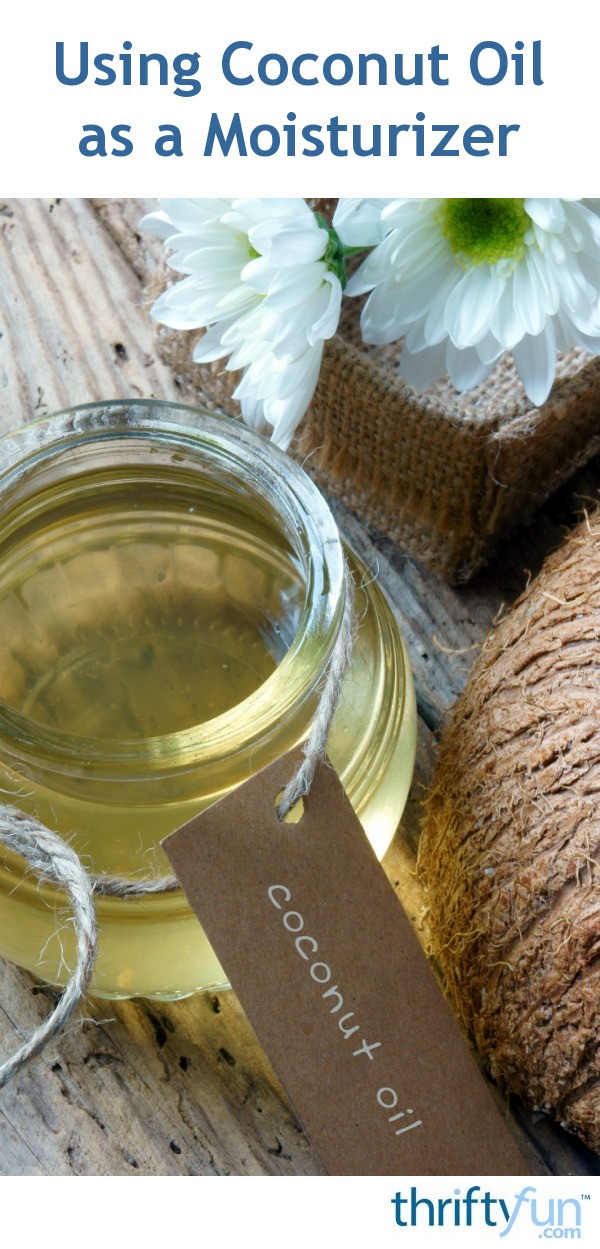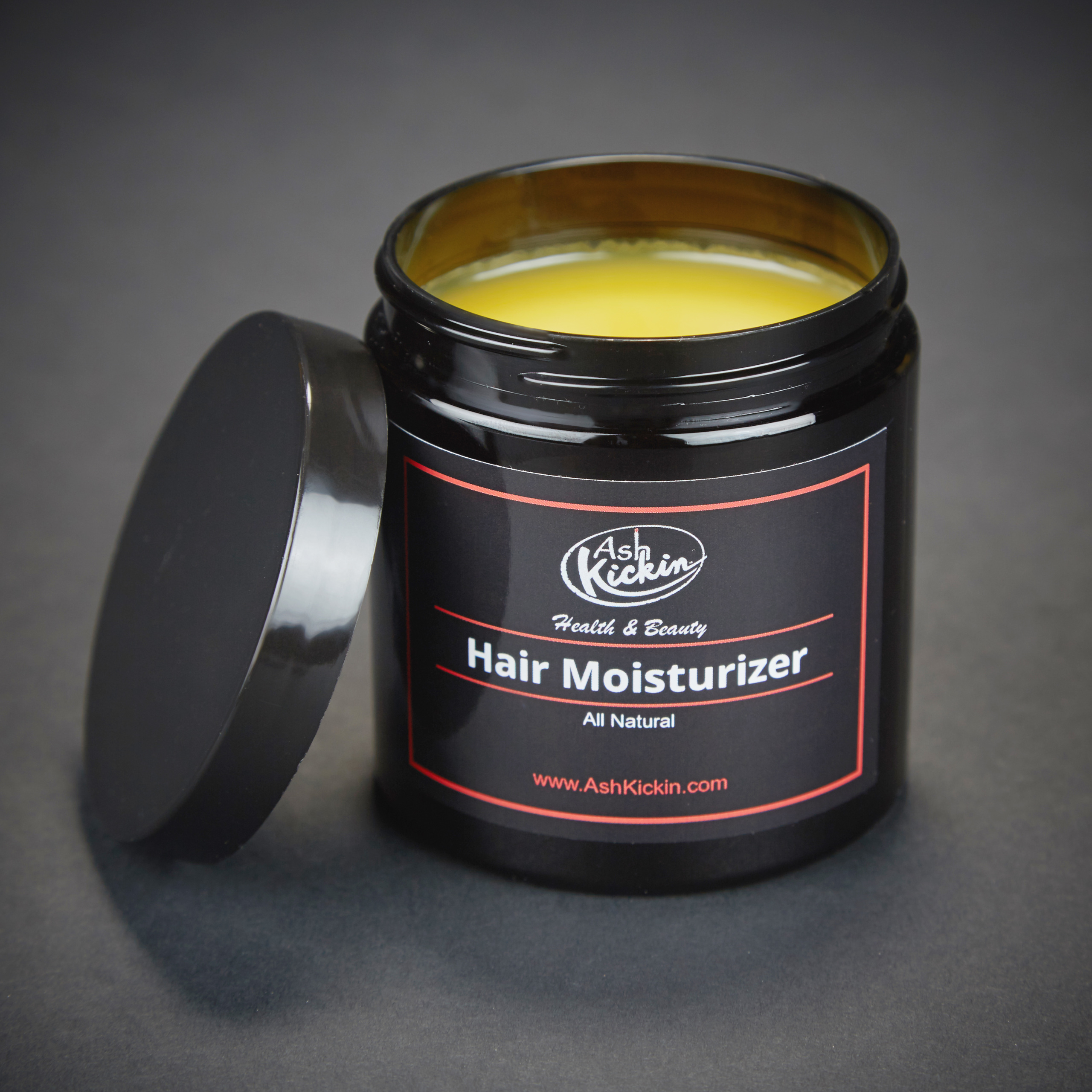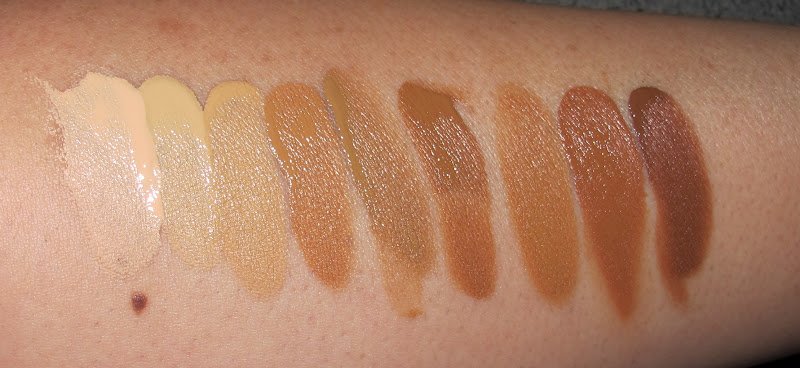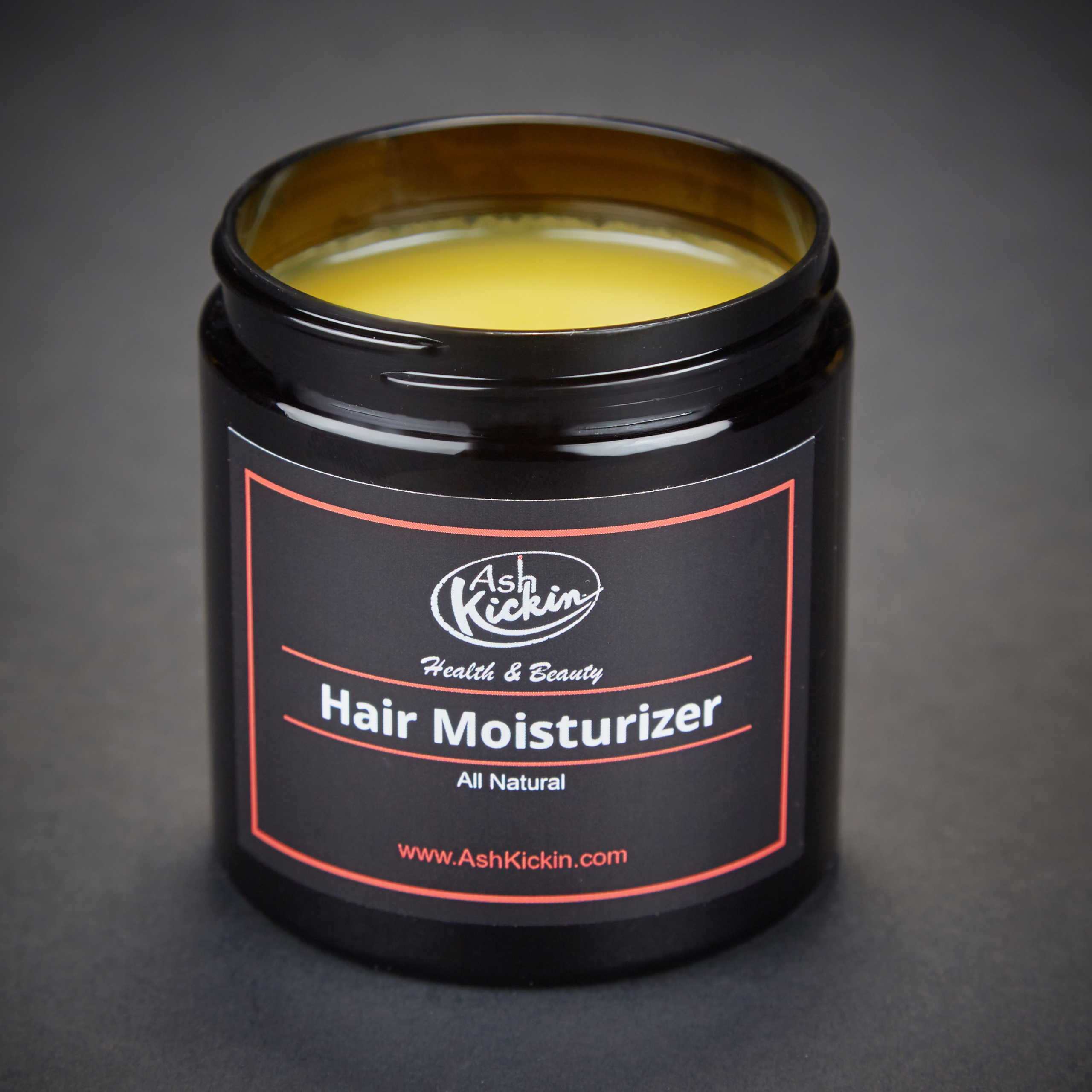Though body oils and body lotions have the same end goal—to moisturize your skin—they get the job done in different ways. "When you layer an occlusive oil on top of a lotion you get better penetration of the active ingredients in the lotion producing faster and more noticeable hydrating benefits," she says. Keeping your face hydrated with certain types of skincare products is a no-brainer if you deal with dry or flaky skin. However, even people with oily or acne-prone skin need their daily dose of moisture.
Instead of applying a thick or heavy cream, which may bog down oily skin types, the goal is to apply on an oil-free, non-comedogenic moisturizer that sits lightly on top of your skin. All three experts agree that moisturizers can be swapped out for face oils. Says Dr. Marmur, "Oils are occlusive, which means they trap moisture on the skin.
An oil-based moisturizer is best for those with dry skin that has a damaged barrier or lacks sebum. The oil-based ingredients will help to replenish the skin's barrier function. Many oils also contain vitamins and fatty acids that impart anti-aging benefits. For instance, rosehip seed oil contains provitamin A, mostly as beta carotene. Beta carotene has the ability to increase cell turnover and promote regeneration in the outer layers of the skin. Over time, this can help even out skin tone and add a "glow" to the skin.
So this oil-based moisturizer not only helps to replenish the skin's lipid barrier but also provides a youthful glow to skin. If you're someone with oily skin, you don't have to miss out on the benefits of an oil. "Many people feel that oily skin types cannot use oil-based skin-care products, which is not true," says Dr. Zeichner.
Everyone's skin can benefit from the inclusion of skincare products with moisturizing properties. However, if your skin type is oily, acne-prone, or combination, then an oil-free moisturizer is going to feel much better on your skin than a heavier, oil-based formula. Also, if it's the middle of summer or you live in a humid climate, oil-free moisturizers are usually the way to go. The result is beautiful, silky skin that's balanced, radiant and healthy. Additionally, skincare oils are generally "cleaner" than other moisturizing products.
Most oils used as moisturizers are naturally shelf stable for three years or more, meaning synthetic preservatives aren't necessary. These characteristics make body oils a better fit for many with skin sensitivities, and actually leave less of a "greasy residue" than many lotions and creams. If you're on the hunt for an oil to add into your routine, Levin recommends squalene, marula, or jojoba oil, since they can help with redness and won't clog pores, given the molecule size.
These natural oils will not only condition skin, but they're also packed with essential vitamins. Gohara mentions mineral oil-based products like Vaseline are also a great choice for most skin types. Oils to avoid in skincare are argan and coconut oil, since the molecule size is larger and therefore may contribute to acne . Although the main benefit of a moisturizer is that it locks in moisture, the active ingredients that can be added to moisturizers are also a perk. For example, hyaluronic acid, an amazing hydrator, is found in many moisturizers.
If you are concerned about dark spots, anti-aging, or acne concerns you'll easily find a moisturizer with the actives to address the issue. If you have dry skin, using a moisturizer can help lock in moisture. Moisturizers also work well for those with oily skin, as they are light and don't contribute to excess oils. The skin care expert recommends this luxurious oil that's made of clean and organic ingredients. "It feeds the skin with vitamins and super fruits that provide protective benefits thanks to their antioxidant-rich makeup," she said. Our pick for the best water based moisturizer for face is Formulyst Super Hyaluronic Water Moisturizer.
This lightweight formula features hyaluronic acid, the key molecule involved in skin hydration. Hyaluronic acid helps boost your skin's natural nourishing powers by attracting atmospheric moisture and transforming it into intense hydration for your skin. Even though it is a water based moisturizer, Formulyst Super Hyaluronic Water Moisturizer contains jojoba oil and apricot kernel oil to balance oil production.
Both of these botanical oils are non-comedogenic, so you don't have to worry about clogged pores or breakouts. By now, we all know how great oils and lotions are at keeping the skin smooth and hydrated, playing a vital role in any body care routine. But with all the options on the market in both categories, you may have a hard time deciding whether a body oil or body lotion is the better option. After all, both skin care products promise soft, hydrated skin, so what's the difference, right? Well, you can skip the Google search because we're here to share some helpful information.
Read on to find out if body oil is better than lotion, so you can decide which product to add to your daily skin care routine. We obviously need a moisturizer to hydrate our skin every day but the question revolves around its capabilities and whether it'll keep our skin hydrated for the whole day or not. Body oils are significantly lighter and non-greasy than body creams or lotions and absorb fast without leaving a greasy behind. Those who apply body creams or lotions on a daily basis remark that they feel sticky and oily afterward. It completely depends on what kind of oil you are using on your skin. To get the best results out of body oils, you should consider using organic and plant-based oils including jojoba oil, argan oil and such.
It's a known fact that our skin requires water to keep its healthy glow. That's why there are many different types of skincare products on the market designed to hydrate and moisturize (there is a difference between the two, but we'll get there in a bit). We know navigating between these different products can be a bit tricky, which is why it's important to learn more about each product, its benefits, and how your unique skin type factors in. To this end, we've decided to highlight the differences between moisturizers, creams, and oils to help you pick out the right products for your regimen. Top facialist Candace Marino loves how body oils help lock in moisture.
Sure, I'm only 22, but didn't you read that terrifying headline that says what you're doing to your skin today is what impacts how it looks ten years from now?? Well, I sure did, and I've been using anti-aging moisturizer since I was thirteen. But unnecessary panic aside, oils are phenomenal at reducing wrinkles, because they intensely hydrate the skin, which evens skin texture and helps with collagen production.
Oils are also a powerhouse of wrinkle-fighting ingredients, and are one of the most powerful and consistent options in your anti-wrinkle skincare. I also use a body oil in place of lotion for extra anti-aging benefits on areas like hands or chest, that have thin skin, meaning they're prone to wrinkles. Coconut oil is easily absorbed into the skin and is known to have many health benefits, including those from vitamins E and K, as well as its antifungal and antibacterial properties. Along with cocoa butter, coconut oil is likely to cause breakouts. "In general, coconut oil is a great option for almost everybody, except if you have oily skin and you're acne prone, I would not use it on the face," Katta says. In astudy published in the journalDermatitis, researchers found coconut oil was better than olive oil at moisturizing skin when used in a carrier.
Does oil moisturize better than lotion Remember to look for cold-pressed, unrefined coconut oil for your face or skin care. Contrary to popular belief, most oils and oil-based moisturizers will not clog your pores and cause breakouts. The theory with using oils on breakout-prone skin is that they actually help balance your skin's sebum production, and help your skin's own oil flow more freely . If you have oily or acne-prone skin, the most important thing to look for when choosing an oil-based moisturizer is "non-comedogenic", which means it will not clog pores.
Examples of non-comedogenic oil-based ingredients include jojoba oil, linoleic acid, argan oil, and grapeseed oil. This is a very popular alternative that is very well-known, cheap and can be found at your local grocery store. Coconut oil contains antioxidants and vitamins that help your skin stay moisturized. Many people worry about feeling sticky after applying it, but coconut oil absorbs rapidly into your skin and it leaves it feeling moisturized and smooth.
Coconut Oil contains fatty acids that help reduce signs of aging, keeps dry skin moisturized, and can also help with other skin problems such as stretch marks, scars, cellulite, or even diaper rash. It can also be used as a natural SPF sunscreen as it blocks 20% of ultraviolet radiation. Making sweeping, generalized recommendations isn't wise in the world of skincare, because no one's skin is the same. You might have dry skin some days and oily the next, or your skin could respond to oils better than lotions and vice versa. Most experts don't advise replacing your moisturizer with a facial oil, because as mentioned, they aren't really the same.
They are mainly lipids and oils, which hydrate and improve the skin softness, flexibility, and smoothness. The skin slip or lubricity contributes to consumer satisfaction. Intracellular lipids comprising multilamellar, which are located between SC play a major role in skin architecture. In SC, ceramides are the major lipid constituents and along with neutral lipids, they form broad laminated intercellular sheets, which act as barriers to our environment. Lipophilic compounds such as cholesterol and ceramides are being used in topical skin creams.
They get easily incorporated into liposomes and make the skin texture softer and smoother. Nanoencapsulated triceramides are also being used for increasing the hydration of the skin. Long chain saturated fatty acids, for example, stearic, linoleic, oleic, and lauric acid and fatty alcohols are essential fatty acids that are found naturally in palm oil, coconut oil, and wool fat. They influence skin physiology and pathology via their effects on skin barrier functions, eicosanoid production, membrane fluidity, and cell signaling.
Canola oil in specific is known to reduce sodium lauryl sulfate irritation. I am #blessed with the confusing and evil "combination" kind of skin, where I can simultaneously get pimples and blackheads around my nose and chin, but my entire face feels tight. Especially in winter, don't even get me started on the flakiness and peeling that comes from my poor, dry skin.
An oil is theonlytool in my large skincare arsenal that so easily fixes dry and tight skin, every time. Humectants bring moisture to our skin, which is important for healthy skin barrier function. The downside is that not all body creams contain the essential fatty acids that oils do. Low quality body lotions are often lighter than oils, and depending on the formula can evaporate from the skin more quickly. Oil-based moisturizers can come in the form of body or face oil, ointments, body butter, or thick creams.
The primary difference in these products is the texture and the amount of oil contained in the product. It's an oil-based moisturizer if there's more oil in the product than water. If you have cracked or dry skin, ointments are ideal because they are protectants for damaged skin. Extracted from the seeds of wild rose bushes, rose hip seed oil has seen a surge in popularity and is increasingly found in facial skincare products that tout moisturizing, anti-aging benefits.
The latter will never be just an oil alone, but other types of moisturizers can be — especially emulsions. In conclusion, facial oils are definitely better than commercial moisturizers. They have many benefits including getting rid of acne, preventing premature aging, and managing fine lines and wrinkles.
Not to mention that most of them on the market are all-natural and safe to use. However, you should take into consideration that some of them may cause irritation or other side effects. Before using any oil on your face, make sure that it is safe to use on your skin by doing some research first. If you start using a face oil and start to get a rash or pimples it is best that you consult with a professional as there might be an underlying issue.
Some people have issues with conventional moisturizers, they might make your skin feel even dryer, or oilier because they have ingredients that are quite questionable. If you are one of these people then maybe face oils are the perfect solution to your problem. Natural oils are made from all-natural ingredients like fruits, nuts, vegetables, etc.
Some examples of natural face oils include jojoba oil, argan oil, almond oil, sunflower oil, etc. These types of oils contain vitamins, minerals, and other nutrients that promote healthy skin. Coconut oil is one of the best natural oils you can use for your skin as it contains lauric acid, which has antibacterial properties.
However, lotion also provides much-needed moisture by penetrating the skin with its part-water formula, according to the outlet. "Look for lotions containing hyaluronic acid and ceramides—both enhance skin's water-retaining abilities over time," certified dermatologist, Rachel Nazarian, told the outlet. But, using the two together might be your best bet for deep, lasting hydration. Right after hopping out of the shower, be sure to apply a body oil to help seal in moisture. These oils are then able to absorb quickly and help repair the skin's moisture barrier, which will help your skin stay hydrated.
If you have acne-prone and oily skin, it probably sounds more logical to reach for oil-blotting sheets than oil. But facial oils have gotten a bad, undeserving rap in the acne-fighting world. Adding oil into your routine can help balance overactive sebaceous glands. These glands produce oil, and can be imbalanced and produce too much if your skin doesn't think it's getting enough.
If you're doing everything you can to combat dry skin, consider adding a facial oil to your routine. "The benefits include leaving skin feeling soft, smoothing texture, and improving radiance." Body butter and body lotion have many things in common when it comes to taking great care of your skin. Both focus on replenishing your skin's moisture and protecting it from long-term damage and dryness. One of our top healthy skin tips is to moisturize your skin daily to help it look and feel amazing.
When deciding between body butter and lotion, you can't really go wrong because both beauty products are great options for moisturizing your skin. Dr. Rubin warns against formulas with lots of botanical ingredients, essential oils, and fragrances—especially for those with sensitive skin—as they can cause contact dermatitis. Houston agrees, adding that tea tree oil specifically should be avoided. "Tea Tree can be very drying and most skin types will become sensitive if used too often," she explains. For a first foray into the world of body oils, Dr. Garshick recommends this affordable option from Vaseline. "It's great for those with dry or dull skin, as it not only works to hydrate the skin but also to lock in moisture without leaving the skin feeling greasy," she said.





